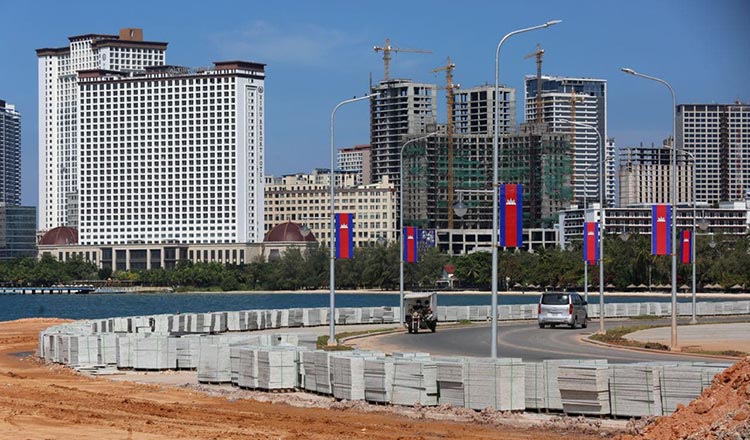
January 27, 2022
The property sector is likely to be the biggest beneficiary if Cambodia pushes back the start of a capital gains tax (CGT) for another two years, according to tax and real estate experts. However, they warned that by kicking the tax can down the road the government will deprive itself of revenue that could be used to stimulate the economy.
The Ministry of Economy and Finance reportedly submitted a request to Prime Minister Hun Sen this week to postpone the start of the tax until January 1, 2024. The 20 percent tax on income from the sale or transfer of capital has already been pushed back one year.
“We understand that the rationale for the further delay in the implementation of the Capital Gains Tax Prakas was driven primarily to support the Cambodian real estate sector as the Cambodian economy transitions out of the Covid environment of the last few years,” said Clint O’Connell, Partner and Head of the Cambodia Tax Practice Group at DFDL. “How this delay, if it occurs, will benefit local companies and stimulate business is arguable. The biggest impact of the capital gains tax would be on property speculation so, to the extent that a delay in the capital gains tax allows cash to continue to circulate in the economy through property speculation, then that arguably is a good thing.”
The General Department of Taxation beat its target last year by 24 percent, collecting $2.78 billion in taxes. Knight Frank (Cambodia) Country Head Ross Wheble said deferring capital gains tax is likely to stimulate the local property market at the cost of higher government revenue.
“Over the short-term, it will certainly alleviate pressure on property owners that need to sell real estate assets due to financial difficulties as a result of the ongoing pandemic,” he said. “We may also see more properties come to market as owners looks to sell their properties before the capital gains tax kicks in, however, the impact on economic recovery is likely to be nominal, whilst government tax revenues, and hence government spending, will be negatively impacted.”
For foreigners who are not investing in Cambodian real estate, any delay in the CGT is likely to have little impact, DFDL’s O’Connell said.
“Those investing in production or agriculture etcetera in Cambodia typically take a long-term position to their investment so a two-year deferment of capital gains tax would still need to be accounted for. Tax savvy investors would look to tax treaties and tax-friendly jurisdictions through which they could invest in Cambodia and shield themselves from the impact of capital gains tax in the long-term.”
The Ministry of Economy and Finance first introduced a Prakas to extend the CGT to individuals in April 2020 but delayed it due to falling demand for real estate during the coronavirus pandemic. According to the Prakas, the 20 percent tax applies to resident and non-resident taxpayers on profits derived from the sale or transfer of six types of capital: real estate, leases, investment capital, goodwill, intellectual property and foreign currency.
Source: https://www.khmertimeskh.com/501014036/tax-delay-may-stimulate-property-sector-experts-say/

We use cookies to improve your experience, to remember login-in details, provide secure log-in, and to optimize
site functionality and deliver content tailored to your interests .